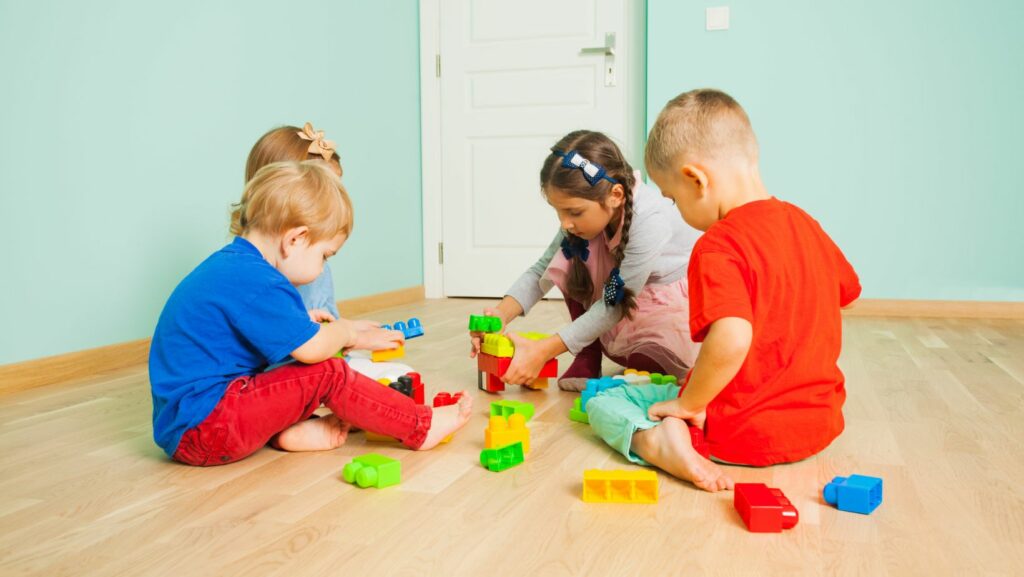Navigating social scenarios without alcohol can sometimes feel like a daunting task. But what if there was a way to enjoy quality time with friends, family, or even by yourself, without the looming presence of alcohol? Enter the concept of home-based activities.
Planning activities at your own home isn’t just a cost-effective and comfortable alternative to going out; it’s also a strategic move to avoid alcohol-related situations. By controlling the environment and the activities, you’re in charge of the narrative.
Stay tuned as we delve deeper into the benefits of home-based activities and how they can help you steer clear of alcohol, while still ensuring a fun-filled, engaging experience.
How Does Planning Activities At Your Own Home Help You Avoid Situations Involving Alcohol?
Arranging activities at home presents an optimum solution for dodging situations involving alcohol. It helps individuals exert control over their environment and ensures they participate in fun-filled experiences without the dependence on alcohol.
The Consequences of Alcohol Abuse
 Alcohol abuse often manifests in detrimental effects, such as deteriorating health conditions and impaired judgement. For instance, severe liver diseases often stem from prolonged alcohol misuse. Accidents that result in injuries or fatalities are also a frequent consequence when alcohol clouds the judgement of individuals. Moreover, repeated alcohol misuse can lead to dependency, a difficult and painful condition to manage and overcome.
Alcohol abuse often manifests in detrimental effects, such as deteriorating health conditions and impaired judgement. For instance, severe liver diseases often stem from prolonged alcohol misuse. Accidents that result in injuries or fatalities are also a frequent consequence when alcohol clouds the judgement of individuals. Moreover, repeated alcohol misuse can lead to dependency, a difficult and painful condition to manage and overcome.
Social interactions often carry the expectation of alcohol inclusion, especially in gatherings or parties. However, the correlation between alcohol and social events isn’t a prerequisite for fun gatherings. Instead, home-based activities appear to challenge this correlation effectively. Engaging in games, movie nights or themed dinners with friends and family at home can provide enjoyment equivalent to, or in some cases, surpass that of gatherings involving alcohol. Such alcohol-free social interactions at home not only strengthen bonds but also advocate a healthier lifestyle.
The Role Home-Based Activities Play
 Setting the stage for alcohol-free fun, home-based activities play a significant role in bypassing situations involving alcohol. Ensuring joy, comfort, and a sense of belonging, these activities help one keep control over the environment, fostering healthier lifestyles.
Setting the stage for alcohol-free fun, home-based activities play a significant role in bypassing situations involving alcohol. Ensuring joy, comfort, and a sense of belonging, these activities help one keep control over the environment, fostering healthier lifestyles.
Consider several home-based activities that encourage socializing away from the influence of alcohol. Game nights, often a hit, involve board games, card games, or video games, captivating guests without the addition of alcohol. Hosting dining events, like potlucks or barbecues, shift focus towards appreciating delicious food and engaging conversations. Film or book clubs offer a platform to share thoughts on common interests, lending to a deepened understanding and bonding.
How Activity Planning can Deter Alcohol Use
Activity planning at home serves multiple purposes, not least of which is providing a viable deterrent to alcohol use. This discussion delves into the psychology behind activity planning and sheds light on how prioritizing activities over alcohol can lead to healthier and more enriching lifestyles.
 Understanding the mechanics of activity planning provides insight into its potential as a tool to deter alcohol use. Cognitive psychologists suggest that planning activities – social or solitary, creative or physical – can redirect focus and energy away from harmful substances like alcohol. Take, for instance, structured activities such as art projects or group fitness routines. These not only require attention but also promote endorphin releases responsible for feelings of pleasure and satisfaction, while offering a space for social interaction with minimal temptation for alcoholic indulgence. This method of substituting alcohol use with healthier alternatives fits into the broader framework of cognitive-behavioral therapy (CBT), which has shown effectiveness in the treatment of alcohol use disorders.
Understanding the mechanics of activity planning provides insight into its potential as a tool to deter alcohol use. Cognitive psychologists suggest that planning activities – social or solitary, creative or physical – can redirect focus and energy away from harmful substances like alcohol. Take, for instance, structured activities such as art projects or group fitness routines. These not only require attention but also promote endorphin releases responsible for feelings of pleasure and satisfaction, while offering a space for social interaction with minimal temptation for alcoholic indulgence. This method of substituting alcohol use with healthier alternatives fits into the broader framework of cognitive-behavioral therapy (CBT), which has shown effectiveness in the treatment of alcohol use disorders.
This study provides empirical evidence supporting the practice of activities planning at home as a strategic deterrent against the potential pitfalls of excessive alcohol use. By engaging in sector-led activities, participants experienced reduced cravings for alcohol, increased their enjoyment without intoxication, and cultivated more intimate and meaningful relationships, proving the effectiveness of such an approach. Hence, the strategy of prioritizing activity planning and implementation at home over alcohol significantly contributes to promoting a healthier and happier lifestyle.



